Have you ever found yourself pondering the question, "How many eggs does a chicken lay a day?" If so, you're about to embark on an egg-citing journey into the fascinating world of poultry farming.
Get ready to discover the secrets behind the egg-laying habits of these clucking and cackling feathered creatures in this engaging and extensive blog post from Poultry Farm Guide, your ultimate trusted source. Chickens showcase their remarkable versatility by producing a wide array of eggs.
In the world of agriculture, poultry farming holds a special place, and one of the most intriguing aspects is the egg production of chickens. Farmers, enthusiasts, and curious minds alike are drawn to the mysteries surrounding how many eggs these feathered friends can lay daily.
Throughout this article, we'll delve deep into the enchanting world of egg-laying behavior, uncovering various fascinating facts along the way. So, get ready to explore the mesmerizing realm of chicken egg-laying behavior, where surprises await at every turn!
People Also Read: What Should Be Inside a Chicken Coop?
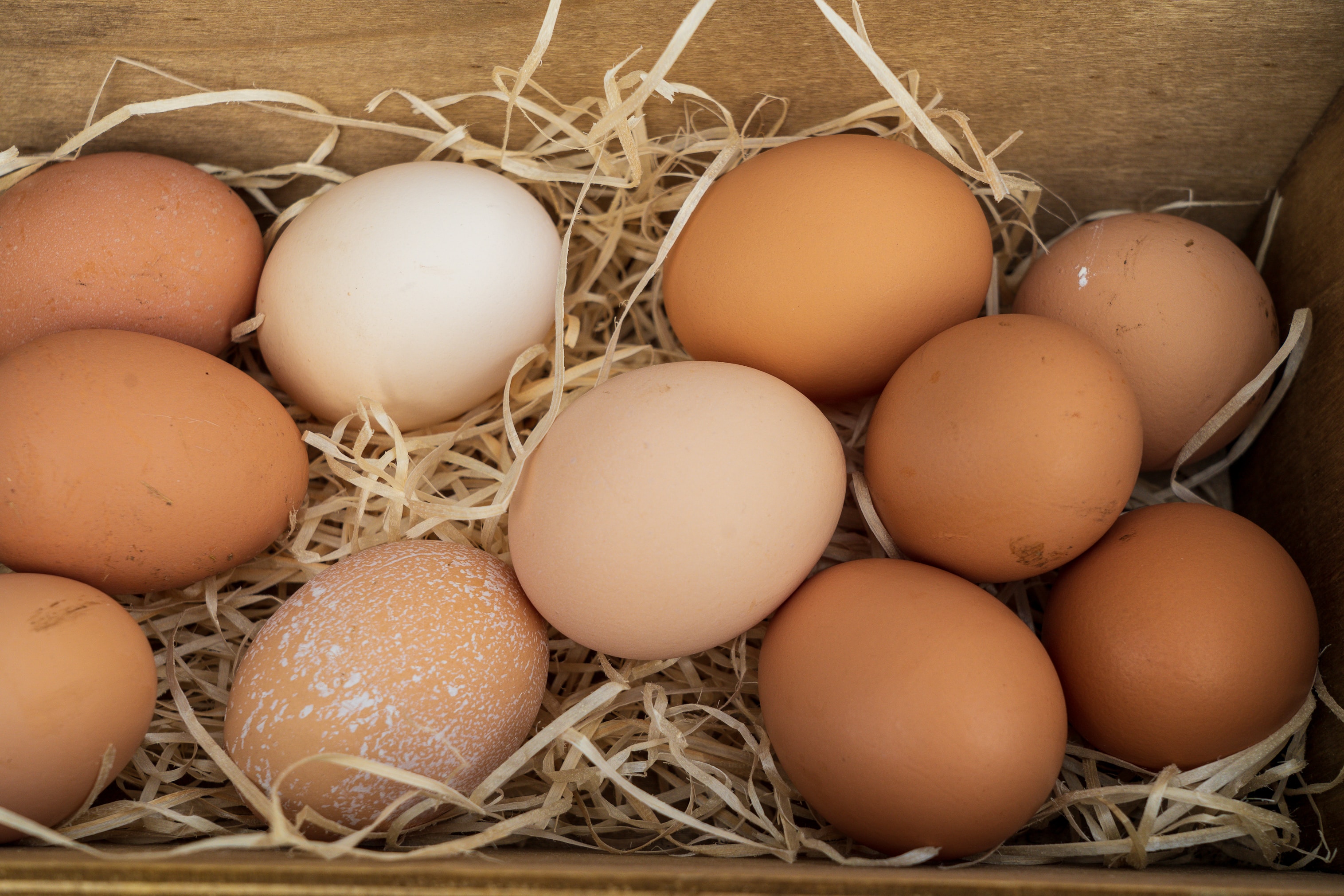
How Many Eggs Does a Chicken Lay in a Week?
Before we dive into the specifics of daily egg-laying, let's first explore how many eggs a chicken typically lays in a week. The answer to this question can vary depending on factors such as breed, age, health, nutrition, and environmental conditions.
On average, a healthy chicken can lay around 4 to 6 eggs per week. Some prolific egg-laying breeds, like Leghorns, can produce up to 6 to 7 eggs per week, while others may lay slightly fewer.
Can a Chicken Lay 2 Eggs a Day?
While it's incredibly rare, there have been instances of chickens laying two eggs in a day. This unusual phenomenon is known as "double-yolk" eggs, where the chicken's reproductive system releases two yolks simultaneously.
Double-yolk eggs are often larger than regular eggs and occur due to hormonal imbalances or genetic predispositions. However, it's important to note that consistently laying two eggs a day can be taxing on the chicken's body and may lead to health issues in the long run.
How Many Eggs Should 10 Chickens Lay a Day?
With ten chickens in a flock, you can expect a considerable yield of eggs daily. Assuming each chicken lays an average of 4 to 6 eggs per week, the total number of eggs produced by ten chickens would be approximately 40 to 60 eggs per day. However, this number can fluctuate due to various factors and individual variations among the birds.
Can a Chicken Lay 6 Eggs a Day?
While it's theoretically possible for a chicken to lay 6 eggs in a day, it's exceptionally uncommon and not sustainable in the long term. A hen's reproductive system is designed to produce one egg per day under ideal conditions. Laying more than one egg per day can strain the chicken's body and lead to health complications, including calcium deficiency and reproductive issues.
People Also Read: Can Chicken Eat Cantaloupe? A Complete Guide for Chicken Owners
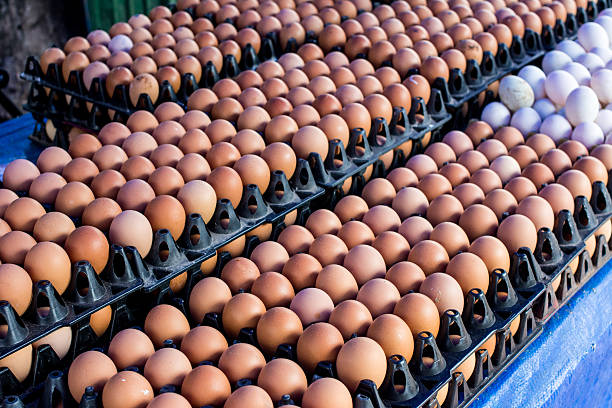
How Many Eggs Does a Chicken Lay Monthly?
To estimate the number of eggs a chicken lays in a month, we can multiply the average weekly egg production (4 to 6 eggs) by four. Therefore, a single chicken is likely to lay approximately 16 to 24 eggs per month. However, keep in mind that external factors such as daylight length and seasonal variations can affect a chicken's egg-laying frequency.
How Many Eggs Will 100 Chickens Lay a Day?
If we assume each chicken lays 4 to 6 eggs per week, a flock of 100 chickens could potentially produce around 400 to 600 eggs per day. However, this is a general estimate, and the actual egg production will depend on factors like the health of the birds, nutrition, and environmental conditions.
How Many Eggs Does a Chicken Lay in a Year?
Over the course of a year, a single chicken can lay anywhere from 200 to 300 eggs. The annual egg production largely depends on the factors mentioned earlier, but it's worth noting that as chickens age, their egg-laying capacity tends to decline.
People Also Read: What is a Young Male Chicken Called?
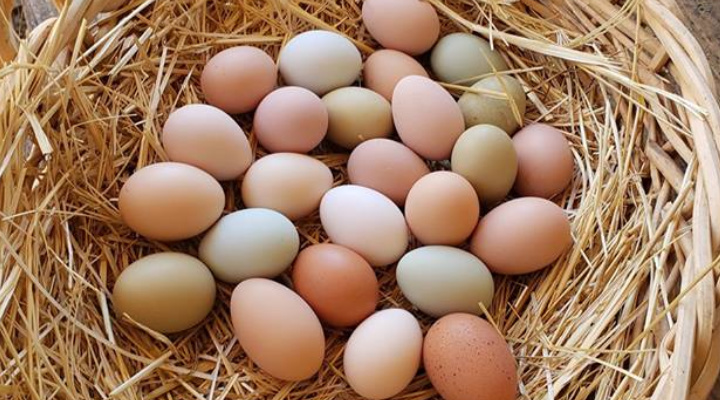
How Many Eggs Can a Chicken Lay in a Week?
We've briefly touched on this earlier, but it's worth saying that the typical egg-laying frequency for a chicken is about 4 to 6 eggs per week. As chickens are not machines, their reproductive cycles can vary, and they might skip a day or two between laying eggs.
How Many Eggs Does a Chicken Lay in a Lifetime?
The total number of eggs a chicken lays during its lifetime depends on several factors, including breed, overall health, and living conditions. On average, a chicken can lay eggs for about 2 to 3 years before its egg-laying capacity decreases significantly. Over this period, a chicken may produce approximately 500 to 800 eggs.
How Many Eggs Does a Chicken Lay in a Month?
To calculate the average number of eggs laid by a chicken in a month, we multiply the weekly egg production (4 to 6 eggs) by four. Consequently, a chicken is likely to lay approximately 16 to 24 eggs in a month.
How Many Eggs Will 4 Chickens Lay in a Week?
With four chickens in your backyard flock, you can expect a weekly egg yield of approximately 16 to 24 eggs. Remember, this estimation considers the average egg-laying capacity of a healthy chicken.
People Also Read: Unveiling the Beauty of Rainbow Chicken Breeds: A Colorful Guide to Unique Poultry
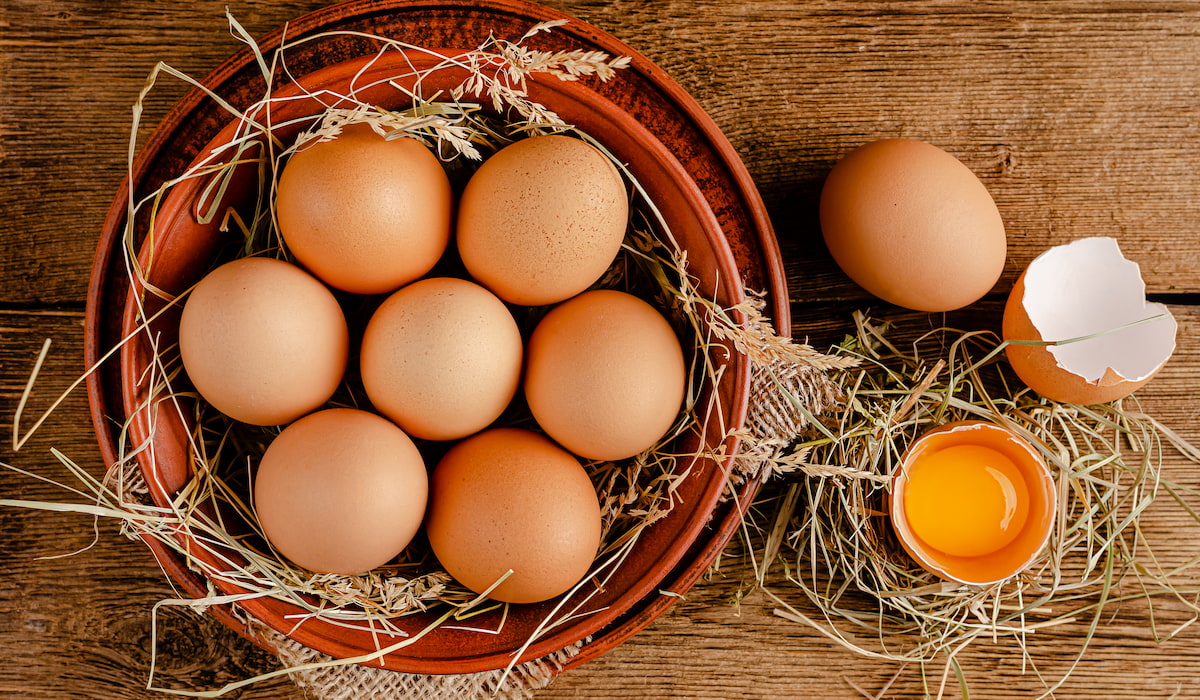
Frequently Asked Questions
Why do some chickens lay more eggs than others?
Egg production varies among chickens due to factors such as breed differences, age, health, nutrition, and living conditions.
What are the best egg-laying chicken breeds?
Some prolific egg-laying breeds include Leghorns, Rhode Island Reds, and Sussex chickens. These breeds are known for their consistent egg production.
Can a chicken stop laying eggs?
Yes, as chickens age, their egg-laying capacity tends to decline, and they may eventually stop laying eggs altogether.
How do I support my chickens' egg-laying health?
To support healthy egg production, provide a balanced diet rich in calcium, maintain a clean and stress-free environment, and ensure regular access to fresh water.
What is the impact of lighting on egg production?
Lighting plays a crucial role in regulating a chicken's reproductive cycle. Ensuring adequate daylight or using artificial lighting can influence egg-laying patterns.
How can I identify a double-yolk egg?
Double-yolk eggs are larger and heavier than regular eggs. Sometimes, the eggs may have a unique shape or require a double shell membrane to accommodate both yolks.
People Also Read: Can Chickens Eat Avocado? A Complete Guide for Chicken Owners
What happens to unfertilized eggs?
Unfertilized eggs are safe to eat and are the ones commonly found in grocery stores. Hens lay these eggs without any contact with a rooster.
How can I encourage broody hens to lay eggs?
Broody hens have a natural instinct to incubate eggs. To encourage egg-laying, provide comfortable nesting areas and discourage excessive brooding behavior.
Can stress affect a chicken's egg production?
Yes, stress can disrupt a chicken's reproductive cycle and lead to a decrease in egg production. Minimize stress factors to ensure consistent egg yields.
What do I do if my chicken stops laying eggs suddenly?
Sudden drops in egg production may indicate health issues or stress. Consult a veterinarian to identify potential problems and take appropriate measures to address them.
People Also Read: Can Your Chickens Eat Grapes? Exploring Safety and Benefits
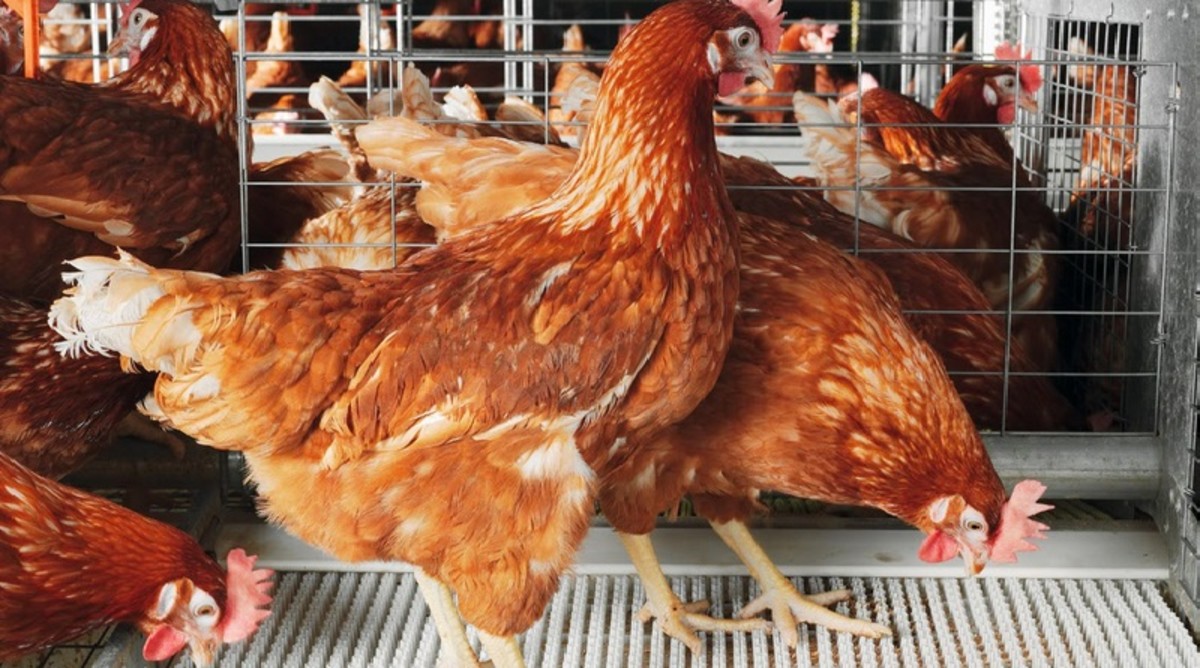
Conclusion
As we conclude our egg-educational journey into the world of chicken egg-laying habits, we hope you've gained valuable insights into the fascinating lives of these feathered creatures.
From the daily egg-laying capacity of a chicken to the number of eggs they can produce over a lifetime, the complexities of nature never cease to amaze us. Next time you crack open an egg for your breakfast or see a hen clucking away in your backyard, remember the incredible effort that goes into producing these wholesome delights.
Whether you're a poultry farmer, an egg enthusiast, or just someone with a curious mind, understanding the egg-laying habits of chickens sheds light on the marvels of nature that surround us every day.
Need a website or other IT services? Visit our website!
Share on Twitter Share on Facebook
Comments
Comment awaiting approval 5 months, 1 week ago
Comment awaiting approval 5 months, 1 week ago
New Comment